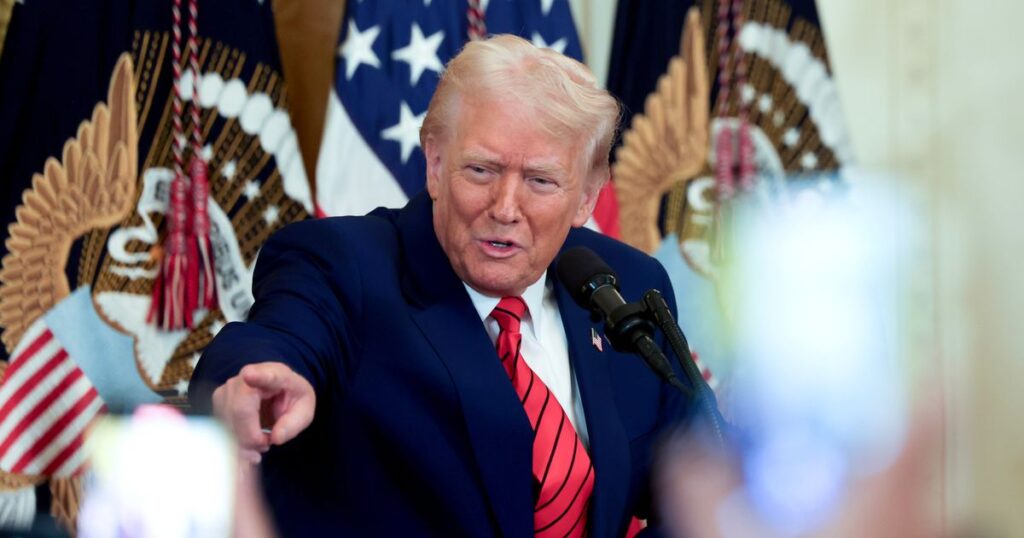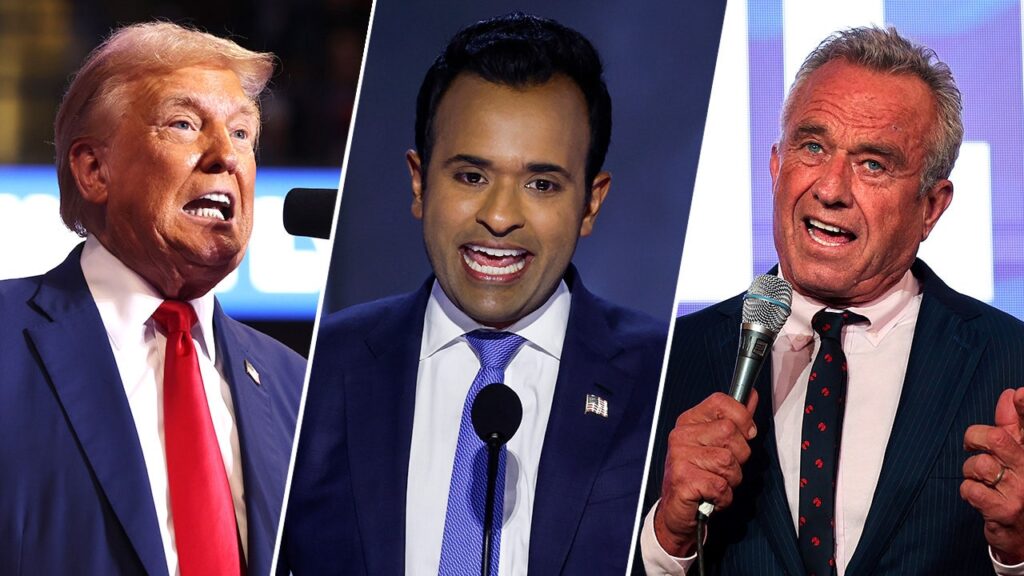When Donald Trump defeated Kamala Harris last November, he did so on the back of widespread economic discontent. More than two-thirds of voters believed the economy, battered by inflation, was in “not good” or “poor” shape. Among voters who said their top issue was the economy, Trump won by a massive 81% to 18% margin.
There was a fear among Democrats that Trump, a billionaire businessman who presided over an economy most voters liked until the coronavirus pandemic hit in 2020, could quickly turn around this negative economic sentiment. Former President Joe Biden repeatedly struggled to convince voters that high employment and robust job creation meant the economy was good even if prices remained high. They worried that Trump, a more natural salesman than the 82-year-old, would be able to persuade voters that they were actually living in the golden age that Trump had repeatedly promised.
A month into his presidency, however, the economy is not a clear strength for Trump. Five polls released over the past two days ― from CNN, Quinnipiac, the Washington Post, Reuters and Gallup ― show signs of simmering discontent. All five surveys indicate that Trump is underwater in his handling of the economy, which is the core of his political strength.
At the root of the problem is a belief that Trump is doing little to lower prices, which many Americans believe are simply too high. In CNN’s survey, 62% of Americans say Trump has not done enough to lower prices. In a Reuters poll, just 32% approved of Trump’s handling of inflation. In the Post’s poll, only 7% of Americans said grocery prices were “excellent” or “good,” while an incredible 92% said they were “not so good” or “poor.”
Trump and his administration’s allies have tried to lower expectations about when prices will go down after repeatedly promising nearly instant relief on the campaign trail. Democrats, however, are eager to flip the script.
Trump’s long-time love of tariffs adds to his problems. In the Post’s poll, roughly three-fifths of voters oppose his proposals to add 25% tariffs on Mexican and Canadian goods, though a slim majority supports his move to add 10% tariffs on imports from China. However, 69% of voters think the tariffs would raise prices in the United States.
Trump is far from doomed. His public standing on his signature issue, stopping illegal immigration, is in a better position. His overall approval rating is in the mid-40s, far above the political dead zone, even if it is lower than any of his predecessors at this point. However, discontent with Trump’s economy should be a major warning sign for Republicans.
The raft of polls held some other early clues about how voters interpret the first weeks of Trump’s second presidency.
Elon Musk Is Wearing Out His Welcome
In theory, Elon Musk’s status as a special government employee means he has to leave government service on May 30. Whether the world’s richest man leaves Trump’s side or sees his influence fade is up in the air, but it’s pretty clear the American public is ready to say goodbye.

SAUL LOEB via Getty Images
In Quinnipiac’s survey, 54% of voters disapprove of Musk’s role in the Trump administration. The Post’s survey shows that 63% of voters are concerned about Musk’s access to federal government databases “that have Americans’ personal Social Security, Medicare and tax information.” Only 28% of Americans thought that Trump giving Musk a prominent role in his administration was a good thing in CNN’s poll, while 54% thought it was a bad thing.
Musk has led his “Department of Government Efficiency” to implement massive layoffs ― potentially of hundreds of thousands of federal employees ― and attempt to shut down whole government agencies with little respect for the law or people’s livelihoods.
Trump’s Authoritarian Ambitions Have Minimal Support
The Trump administration has shown a relentless desire to increase the power of the presidency, taking over everything from the Kennedy Center to the U.S. Postal Service. At their boldest, they are openly embracing anti-American and authoritarian ideals, suggesting they will ignore courts and treat the president’s word as law.
To put it lightly, this push is unpopular with the public: 57% of voters in the Post survey said Trump had gone beyond his authority as president, with just 40% saying he has acted within his authority.
And, matching other surveys, a massive majority of American voters think Trump should follow court orders: 84% say Trump should follow a court order if they rule he did something illegal, while just 11% say he should defy the courts.
Democrats Have A Base Problem
Congressional Democrats’ approval in Quinnipiac’s survey was dismal: Just 21% of voters approve, while 68% disapprove. What’s driving that? Democrats are very down on their own party, with 49% of Democrats saying they disapprove of the performance of their party leaders.
Similarly, CNN’s poll found a whopping 73% of Democrats and Democratic-leaning independents thought Democrats in Congress weren’t doing enough to oppose Trump.
It’s far from clear how this anger from their own base will impact Democrats’ strategy in the coming months, including over a potential government shutdown in March. It’s even less clear how it could impact congressional primaries next year.
A Trump Pollster Warns Congressional Republicans
Separate from the media polls released in the past few days, a key member of Trump’s team provided some not-so-subtle advice to congressional Republicans.
Go Ad-Free — And Protect The Free Press
Already contributed? Log in to hide these messages.
Building America’s Future, a GOP nonprofit group funded at least in part by Musk, released a poll conducted by Tony Fabrizio, Trump’s longtime pollster. The main takeaway? Republicans should really, really extend health care subsidies set to expire later this year.
The survey, conducted in 18 swing congressional districts, found that the most popular thing Republicans could do as part of their big reconciliation package this year wasn’t extending the Trump tax cuts from 2017 but continuing a tax credit for health care premiums Democrats passed during Biden’s presidency. It also found that reducing the corporate tax rate, a stated priority for Trump and other Republicans, was notably unpopular.
If Republicans take the survey to heart, it could spare them withering Democratic attacks both in the near term and ahead of the 2026 midterms. But it’s also likely to divide the party, with hardline fiscal conservatives ― many of whom already believe the party isn’t doing enough to cut spending ― almost certainly to oppose any attempt to extend the subsidies.


